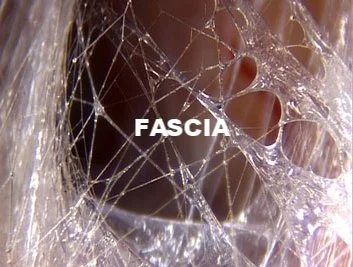What is Fascia & Why Should We Care?
As Fascial Stretch Specialists, we have seen many profound changes in our clients as a result of treatments. On any given day, people are walking away from their sessions with reduced muscle tension and soreness, decreased stress, improved breathing patterns, restored alignment of joints in the body and an increased overall sense of well-being. It’s very common for our clients to use words like ‘light’, ‘floating’, ‘relaxed’ and ‘grounded’ after Fascial Stretch Therapy sessions. Despite these amazing results, many people (including our clients) don’t really have any idea what fascia is or what it does.
So what is fascia anyway and why should we care?
Fascia is the most prevalent tissue in the body and can affect your overall health and well-being. It has a tremendous impact on the mobility and flexibility of the body so it’s important to not only have a good understanding of what it is, but also what you can do to keep it healthy and fluid.
Fascia is a spiderweb-like connective tissue that covers everything in your body-- your organs, circulatory system, brain and nervous system, musculoskeletal system and more. The interconnected muscles and fascia work together as a cohesive unit to create movement.
We used to think that there were 600 plus muscles in the body that were independent and discrete from the rest. Now we understand that it's better to think of our body as having one muscle poured into 600 pockets of fascial webbing. There isn't one single muscle in the body that is not fascially connected to another muscle. So why does this matter? Fascia is the missing element in the mobility/stability equation.
When you experience stress (physical, mental and/or emotional), your fascia reacts by tightening and stiffening. When left unattended to, aging of the body, mind and spirit accelerates, function decreases and quality of life deteriorates.
There is no pill or medication that can improve your fascia, and exercise alone does not optimally balance, align and improve it either.
Research
Ann and Chris Frederick’s book Stretch To Win highlights some interesting research on injuries and your fascia. It notes that the most common sport injuries occur in connective tissue - joint capsules, ligaments, tendons and other fascial structures - rather than in the muscles or bones. It’s therefore been proposed that making fascia a specific target of training and stretching would not only prevent injuries but also encourage longevity in sport.
Effects of untreated fascia
Decreased joint space can lead to degenerative joint disease, osteoarthritis & more.
Increased muscle tone can lead to trigger points, strains, tendonitis, tears & more.
Increased nervous tissue tone can lead to headaches, trigger points, muscle tightness & more.
Increased scar tissue formation.
Decreased blood flow, decreased energy & increased fatigue.
Ways to improve the quality of your fascia include:
Drinking more water (fascia, the most prevalent tissue in body is 2/3 water)
Releasing your tissue with mobility balls (e.g. self-myofascial release)
Targeting your joint capsules as you stretch your soft tissue
Stretching in multiple planes of movement (e.g. Stretch Wave)
Getting treated by a certified Fascial Stretch Therapist
Learning how to improve your breathing patterns
Moving more and moving in different planes of motion (such as Animal Flow and Kettlebells)
Exercising with proper lifting mechanics
Improving your quality of sleep
Managing and coping with your stress
We have found that pairing Fascial Stretch Therapy with functional stability training (integrating mobility, strength and dynamic stability exercises) and a variety of movements (Kettlebells, Animal Flow, ground-based patterns) help to restore normal function and pain-free movement.
Fascia is becoming quite the buzz word in the health and wellness industry. It's our responsibility as practitioners to keep up with the research and apply the best practices for human movement. We address issues in the fascia so you can feel like the best version of your self-- to move freely without pain and chronic ailments.
If you've never had a Fascial Stretch Therapy session before, click here to book your first session. Your fascia will thank you.





